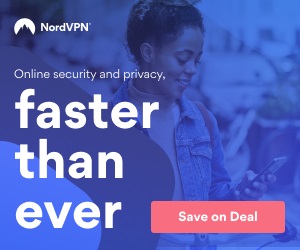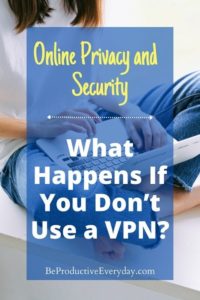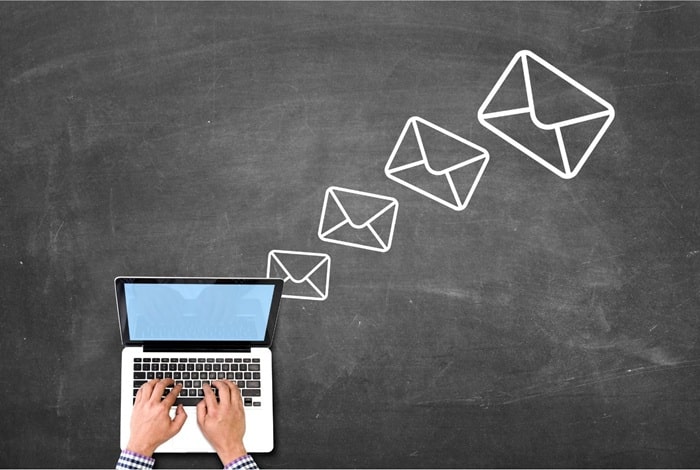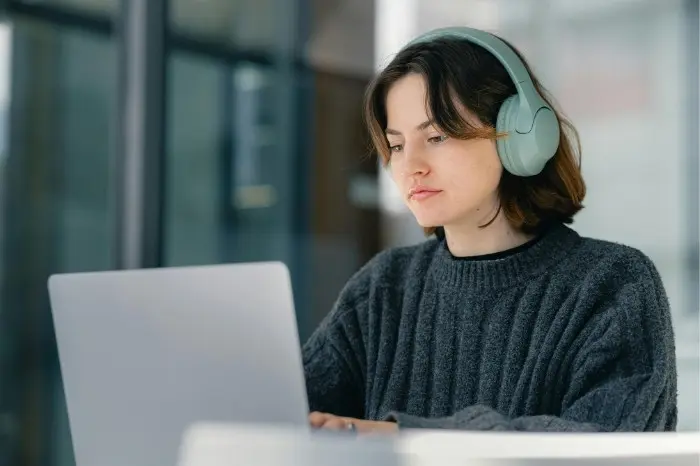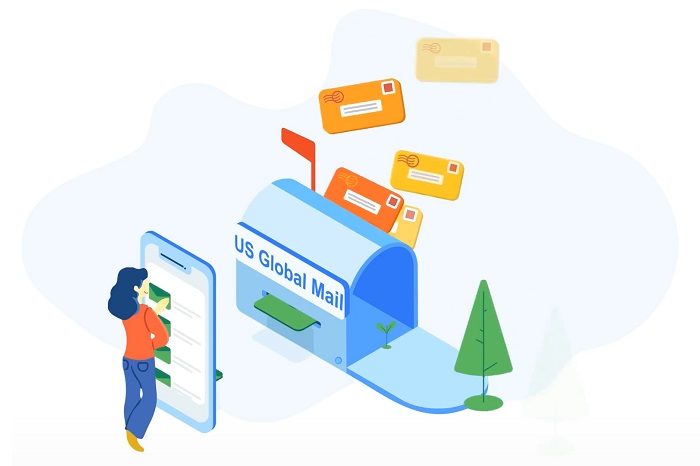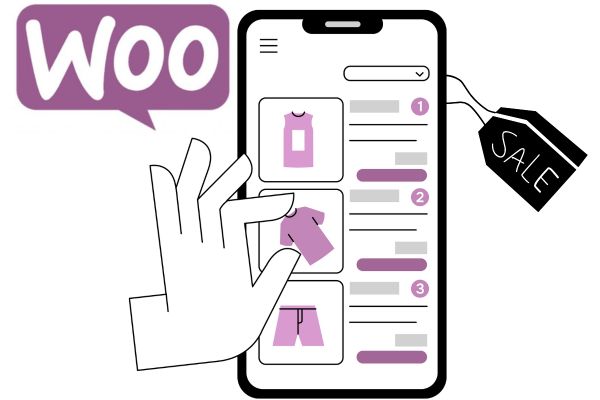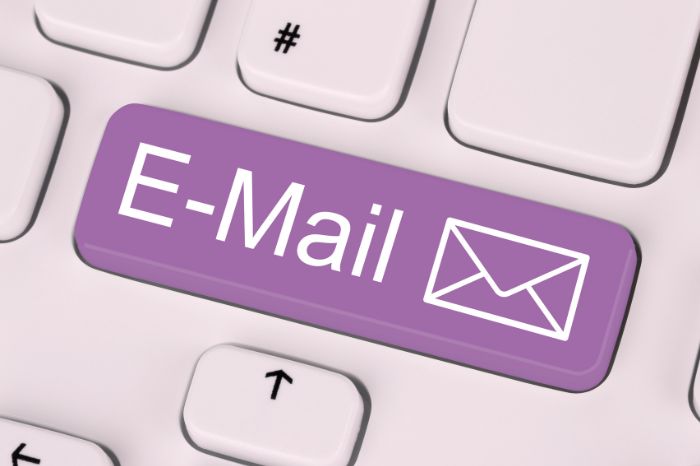If you don’t use a VPN, you may have your IP address exposed (which might reveal personal information about you such as your approximated location), be a victim of session hijacking (in which a hacker hijacks your web session), and have limited access to streaming service libraries.
This page may contain affiliate links. If you purchase through our links, we get a commission at no additional cost to you. Read the full disclosure here.
Wondering what happens if you don’t use a VPN and to what risks can your privacy and security be subjected to when you connect to the internet in an unprotected way?
In this article, you will find the answers you need!
What is a VPN?
VPN stands for Virtual Private Network. VPN is a secure, encrypted connection built “above” the public or private internet network.
A Public Internet Network is a network to which anyone has access, like the ones available in coffee shops. A Private Internet Network, however, is a restricted network, usually used at home or workspaces.
The main purpose of a good, reputable VPN, such as NordVPN, is to protect your online activities through a secure and encrypted connection.
A good VPN will both prevent someone from seeing what you are doing online as well as prevent someone from altering or interfering with your private data.
Typically, a VPN is used by:
- People who are away from home and need to safely connect to a Public Internet Network to work.
- Workers who need to be in constant contact with others online, such as bloggers and website owners, and want to keep their IP (Internet Protocol) addresses private and protected.
- Those who want to watch movies and TV shows that are only available on streaming services in other countries.
- Digital Nomads as they often do not have access to a Private Internet Network.
- Online shoppers looking to increase security when making online banking/credit card transactions.
What happens if you don’t use a VPN? — 4 common problems you can have when you don’t have a VPN

What happens when you don’t use a VPN varies drastically depending on what habits you have online, whether you are connected to the internet for leisure or work, and whether you are making transactions that involve sensitive data such as using your card credit.
Here are the 4 main problems you will have for not using a good VPN:
1. Without a VPN, you run the risk of being a victim of session hijacking
When you’re the victim of session hijacking, the hacker gains unauthorized access to your web session.
This means that in a hijacking session, the attacker can impersonate you and access your sensitive information. I.e.: the attacker may have access to your usernames and passwords, payment details such as your credit card and address used in the online stores you buy from, online baking, etc.
If you’re using a VPN, however, your computer or mobile device first connects to the outside VPN server, which is a private network, before it connects to the web.
Also, a VPN will encrypt the data you send and receive while browsing online.
The protection that a VPN provides you creates a private tunnel that is much more difficult to penetrate, allowing you to access the internet securely. That way you don’t have to worry about being a victim of session hijacking.
2. If you don’t use a VPN, your private IP address can easily be exposed to third parties
Having your IP (Internet Protocol) address exposed — without you even knowing it — is a common security and privacy risk you are exposed to when you don’t have a VPN.
For example: do you have the habit of commenting on blog posts?
Well, every time you leave a comment on a website, the website owner has access to your IP address.
The same goes for when you simply connect to any website: the website owner can see the IP addresses of the website’s users.
If you think this is no big deal, be aware that through your IP address, all sensitive information about your ISP (Internet Service Provider), that you don’t want any strangers to know, could be discovered. For example the city, ZIP code, and, ultimately, the name and location of your ISP, which, of course, can put your physical security at risk.
When you use a VPN all your traffic gets encrypted and, from any website’s point of view, you’re coming from the VPN server. So they can’t see your actual IP address.
3. Without a VPN, you can be a victim of a DDoS/DoS Attack
DDoS (Distributed Denial of Service) attacks are a common type of cyberattack that prevents users from accessing resources or services they have legitimate access to by disrupting the normal traffic or sending information that triggers a crash.
Basically, the purpose of a DDoS attack is to force you to go offline or be unable to access your network.
If you don’t use a VPN, you are vulnerable to DDoS attacks because your IP address is visible.
However, when you connect to the internet through a secure VPN “tunnel”, your IP address becomes invisible, making it impossible for hackers to make you a victim of DDoS attacks.
4. You will not have access to certain shows and movies on streaming services due to geolocation restrictions
Without a VPN, you will have access to a limited catalog of movies and series on the streaming services you use due to geolocation restrictions.
Geolocation restriction, also known as geo-blocking, is when content is not available to certain users due to their geographic location. Geo-blocking doesn’t just happen on streaming services, but also on YouTube and many companies’ websites and personal blogs.
When it comes to streaming services, geo-blocking is often put into practice due to the popularity (or lack of) of a show/movie in certain countries, different subscription prices that streaming services have in different countries, and, mainly, copyright and licensing issues:
A license for media content has to be obtained for each country is available in — from the studio, label, producer, or distributor that owns the right to it. Even if that is not the case as in the case of Netflix originals where they own the rights to the movie, they might not have obtained a license of operation in that particular country at the time of making the movie or TV series. It’s also possible that another company has the exclusive right to air it in that region as part of a former deal. So those rights have to be obtained separately for that to happen.
(Read the full article about geo-blocking in streaming services on Dignited here.)
To be able to access a broader catalog of movies and series on streaming services, you need to be connected to a VPN. This is not illegal unless you live in countries where using a VPN is illegal, such as Russia, Iran, or China.
(Either way, it doesn’t hurt to take a look at the terms of use of your favorite streaming services to make sure there are no restrictions on using a VPN.)
If you don’t use a VPN yet, how to choose the right one?
While purchasing a VPN is technically simple, as Premium VPNs are neither expensive nor difficult to install, this does come with some challenges.
The thing is, some VPNs may provide a few different privacy risks than those a VPN should protect you from.
I mean, one of the main reasons to use a VPN is to protect your online security and privacy. So what is the purpose of using a VPN that will track and store your online activities, for example? Well, there are Virtual Private Networks that do that, yes.
In addition, some VPNs can slow down your connection, while others can expose your real IP address for a few minutes during a signal drop.
So, to make sure that you’re TRULY protected, accessing a fast connection, and without having to pay a very expensive price for this, a good recommendation for you is the reputable NordVPN which has a No-logs policy and is considered the fastest VPN.
If you don’t use a VPN yet, here are the top 7 reasons to choose NordVPN
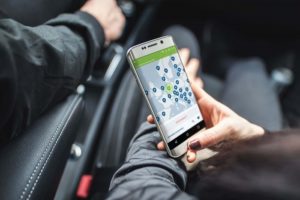
1. NordVPN doesn’t track, collect, or share your private data
NordVPN has a No-log VPN service and uses diskless servers, which store no data or configurations on-site. They understand that what you do online is none of their business, so they just don’t bother tracking your online activities.
This is actual privacy online.
2. You can choose from over 5200 NordVPN servers in 60 countries
Thousands of VPN servers will make sure your internet connection doesn’t suffer.
Also, NordVPN has no bandwidth (the concept that determines the measure of transmission capacity in a particular connection or network) or data limits for VPN traffic.
So, from the UK to the US or most of the countries, you can enjoy the fastest VPN experience in the world!
3. If there is a signal drop, NordVPN will not let your real IP address be revealed
NordVPN has a customizable Kill Switch to protect users when their connection is disrupted.
A VPN Kill Switch is a security measure that exists to protect you in case your VPN connection goes down. This feature will automatically abort your internet connection anytime your VPN stops working, protecting you from the risk of exposing your true IP address.
So, with NordVPN, you can rest assured that your IP address suffers no risks: or you’re safely browsing through your VPN’s private tunnel or you’re no longer connected at all.
4. NordVPN can legally protect your rights because they’re based in Panama
One of the best things about NordVPN is that they don’t need to store logs because they operate under the jurisdiction of Panama, which has no mandatory data retention law.
NordVPN operates under the jurisdiction of Panama, as the country has no mandatory data retention laws and does not participate in the Five Eyes or Fourteen Eyes intelligence sharing alliances.
(You can visit Wikipedia to learn more.)
5. With NordVPN you can connect up to 6 devices at once
With a single subscription, you can protect all devices in your home, including notebooks and computers, mobile devices, and smart TVs!
6. NordVPN shields your IP address and secures your online traffic through encryption
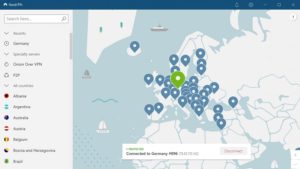
With NordVPN, your online traffic is protected by an encrypted tunnel that allows you to browse the internet without having your IP address exposed or your web session hijacked.
That way, no one will ever have access to your sensitive data or discover your IP address and location.
7. With NordVPN, you can get safe access to content from around the world
Watch your favorite series, movies, and videos safely on streaming services and on YouTube regardless of which countries they are available in!
Quick FAQ about VPNs
What does a VPN NOT protect you from?
Even the best VPN will not protect you from cyberattacks that don’t require your IP address, such as phishing emails.
Phishing emails and text messages may look like they’re from a company you know or trust. They may look like they’re from a bank, a credit card company, a social networking site, an online payment website or app, or an online store.
Phishing emails and text messages often tell a story to trick you into clicking on a link or opening an attachment.
(Visit the official FTC.gov page to learn more.)
Also, a VPN won’t protect you from human mistakes made by you. For example, a VPN will have no way to protect you if you click on links that contain malware, share passwords and other login credentials with third parties, fall into the conversation of a scammer to leak sensitive data about you, or share more than you should on social media.
So, combine the use of a VPN with a good antivirus and ALWAYS be careful when you are online not to click on suspicious links or open emails whose senders you do not know, or inform too much about yourself.
Does using a VPN slow down internet connection speed?
Using a VPN can actually slow down your internet speed depending on the circumstances, but this is easy to solve if you use a good VPN.
When you use a VPN, your traffic is first directed to the VPN server before being redirected to the webpage you want to access.
This process (which is worth remembering, is done to maintain your online security) will obviously cause some delay in your internet loading speed.
Especially if you connect to a VPN server in a country far from the country you are actually in, the connection delay might be a little longer. However, you will hardly notice the delay.
Mainly because I live as a digital nomad, I often have to switch my VPN server to countries I’m not to keep watching the same series and movies on streaming. And generally, I don’t have any speed problems with my internet speed regarding a VPN.
Also, in some cases, you can have your internet speeded up because of using a VPN! What happens is that it’s not possible to see your real traffic when it’s encrypted by a VPN. Therefore, ISPs cannot control your data as the VPN prevents them from throttling it. This can make you get higher internet speeds.
Is a VPN actually necessary?
Yes, using a VPN is actually necessary as this is the only way to genuinely hide your IP address when you access the internet.
Otherwise, your IP address is visible and this exposes you to risks ranging from various cybercrimes to the risk of having your identity and physical address revealed to strangers.
Is it safe to not use a VPN?
No, it is not safe not to use a VPN.
Every time you connect to the internet without a Virtual Private Network, you expose yourself to the risks of having your session hijacked (which can expose sensitive data to hackers, such as your passwords, credit card numbers, and bank details), your connection disrupted by DDoS attacks, and your IP address revealed (which could give third parties and hackers access to your full name and physical address).
Do I need a VPN at home?
Yes, you absolutely need to protect your whole household with a VPN! When you connect to the internet without connecting to a VPN first, as mentioned several times in this article, you expose your IP address. Through your IP address, a pro hacker could discover your name and home address. And, with access to such information, you could be the victim of doxxing, extortion, blackmail, physical violence, and other threats.
Conclusion
If you don’t use a VPN, you are exposed to many different types of cybercrimes that aim to find out your IP address to get sensitive data about you. Hackers will exploit this sensitive data mainly to gain access to your online banking accounts or to get more information from you through other scams such as phishing emails.
This sensitive data varies from your login credentials such as passwords to bank and credit card details, and even your home and work address.
So, if you still unsafely browsing without a Virtual Private Network, perhaps because you believe you are safe or “have nothing to hide”, now is the time to reconsider and start thinking about your online security and privacy more seriously.
Remember that hackers will always focus their attacks on those who are most vulnerable online.
Share on Pinterest!
If this article was helpful to you, would you consider sharing it on Pinterest? This helps others who may also benefit from this information, as well as helping us to spread the word about this quality content that we always strive to create for you. Thank you!
Originally posted on January 9, 2022. Last updated on December 7, 2023.

